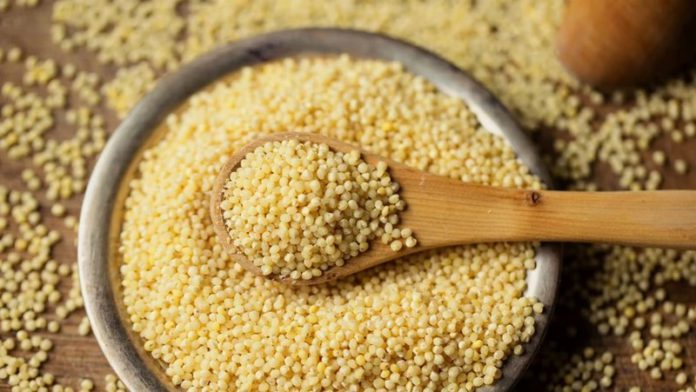The superfood is one of the oldest cultivated cereal grains and has been widely grown and consumed throughout Southeast Asia and Africa for thousands of years.
The colour, appearance and species of millets vary depending on the variety of the millet.
Millet is an important food crop favoured due to its productivity and short growing season under dry, high-temperate conditions.
Among the many reasons for its popularity is its high nutritional value and health benefits, such as helping to manage diabetes and support a healthy heart.
Here are some other amazing health benefits of millet:
- Helps in weight loss
Millets are high in fibre which give a feeling of satiety quickly, hence helping to reduce overeating. The food digests at a slower rate and keeps stomach full for a longer period of time. People who want to lose weight are advised to incorporate millets in at least one of their main meals.
- Helps to decrease high blood pressure
As earlier said, millet contains magnesium. This helps in relaxing the muscles that line the inside of the arterial wall, which helps to reduce blood pressure.
Aids breast milk production
Pregnant and lactating women are advised to consume millet in high amounts to increase the production of breast milk in their body. This enables the mother to feed the child for a longer period of time.
- Helps to keep a healthy heart and clear the arteries
Consumption of millet in large amounts helps decrease triglyceride levels in the body. It thins the blood to prevent blood platelet clumping, thereby reducing the risk of sunstroke and coronary artery disorder. It is also a great source of fibre and magnesium which help to regulate cholesterol in the body and stop them from clogging the arteries.
- Controls Diabetes
The fibre in millet means that it has a very low glycemic index that slows down the digestion process, hence keeping the blood sugar level at a constant ratio. Millets increase insulin sensitivity for people suffering from diabetes and also helps to control the sugar levels for non-diabetics, especially type 2 diabetes.

